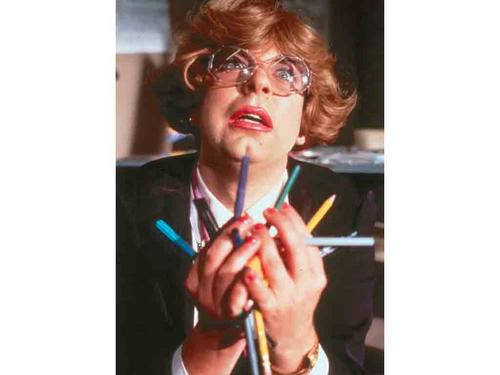November 06, 2005
Pending resolution
'Perhaps Old Europe ended with us, we thought. Perhaps Old Europe was the secondhand paperbacks we exchanged. It was the compilations we made on cassette for one another. It was Gang of Four and The Raincoats. It was The Fire Engines and Magazine. It was Kafka and Canetti. It was that great tide of records and books on which we were borne.'
- Spurious
'"Work is always available if you look hard enough." How hard? Hard enough to get a job -- therefore, if one does not have a job, one has not yet looked hard enough, by definition. The failure to work hard is, on the official ideological level, the most serious moral failure in American society.'
- Adam Kotsko
It's something I can easily forget now, but I've spent most of my adult life unemployed or as a student (the difference between the two, in terms of lifestyle, money, social status, or rather lack of it, were, at that time, indiscernible of course). Spurious' recent post on unemployment, almost an elegiac Borgesian parable, treats the condition as an opportunity, a space outside, rather than a lack of, Work. 'Unemployment - the un was privative, but we experienced it as liberation.' For Spurious, State-funded unemployment made possible a leisured contemplation now circumscribed by the ubiquitious, insidious spread of 'Regeneration'. (One could say the same for State-funded education, since today's university student typically has little in common with the old-style unemployed; the indebted student is now also and already a worker.) But, as I read Spurious' account, I was reminded of Adam Kotsko's rather bleaker post from a few months back, and it his account which chimes with my own experience.
For reasons that were existential and psychological rather than economic, unemployment never felt like something I had chosen. Rather, I was convinced that Unemployability was a Fate, that life was not a deliberate avoidance of work so much as a fleeing from the implications of that social uselessness. When I graduated in the late eighties, graduate unemployment was just starting to bite, but my conviction was that this only confirmed the inevitable. The economic situation might have exacerbated the problem; in the end, however, it didn't much matter since I would never work any way.
Lack of work amplified a feeling that I imagine many people have, but which was particularly pronounced in my own case: a sense that I was not quite real. There was no point getting a job interview, because, along with my 'incompetence', my fundamental fraudulence would be immediately evident to the panel. A magic circle was in place, a familiar closed loop: I would never work because of my inauthenticity; my inauthenticity would only be cured by working. I went to job interviews hoping that the interviewers would persuade ME that I could do the job, which isn't quite the right way round.
The great benefit of eventually getting a long-term job is that it demystified and desublimated Work. Once inside the magic circle, the discrepancy between the language of job ads (which make it seem like only the most hyper-competent, self-motivated careerist automaton could hold down the most modest of positions) and the reality (of poor organization, routine incompetence) became apparent.
When Tim Wrong Side of Capitalism linked to Spurious' post, he rightly made the connection with Deleuze's Postscript on Societies of Control. Which makes me think that Kafka (who, with Foucault and Burroughs is a central figure in Deleuze's essay) is not an avatar of Old Europe, as Spurious suggests, but of New Europe. Or to be more precise: Kafka stands on the cusp between the Old Europe of Fordist discipline and the New Europe of Control. Deleuze reminds us of the infamous distinction, in The Trial, between ostensible acquittal and indefinite postponement, correlating the former with the disciplinary societies we are in the process of moving away from and the latter with the control societies we are moving towards. 'In the disciplinary societies one was always starting again (from school to the barracks, from the barracks to the factory),' Deleuze wrote, 'while in the societies of control one is never finished with anything.'
'Continuous assessment' is the mode by which Control operates. K's anxieties in The Castle and The Trial arise because his status is always pending resolution. He is never really anything finally or definitively. Awaiting the judgement of the court is structurally identical to waiting for the position as Land Surveyor to be ratified; in both cases, K is a homo sacer waiting to be re-admitted into the ranks of the human. But if disciplinary societies held out the hope of finally Being Something (of having a lifelong job), Control societies make any position provisional, temporary, subject to review. Precarity is permanent.
Posted by mark at November 6, 2005 07:37 PM | TrackBack